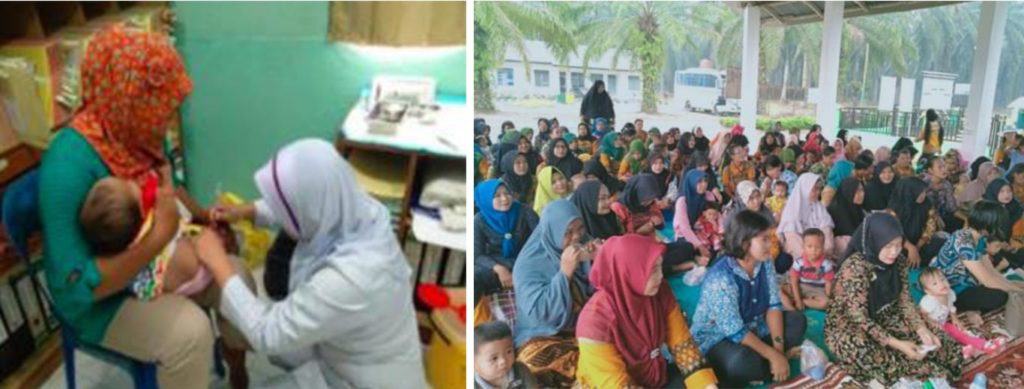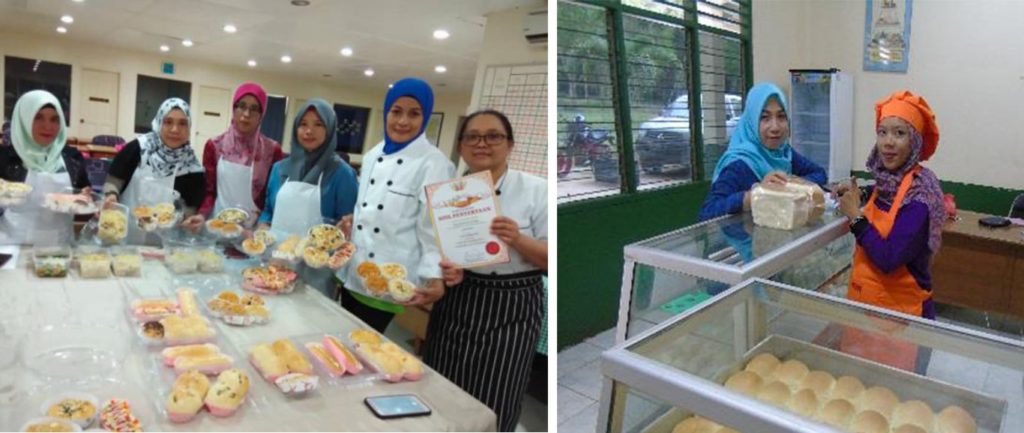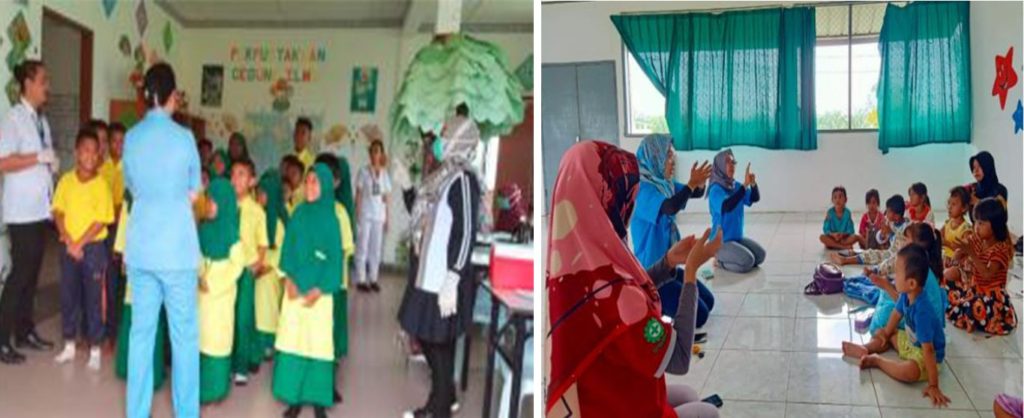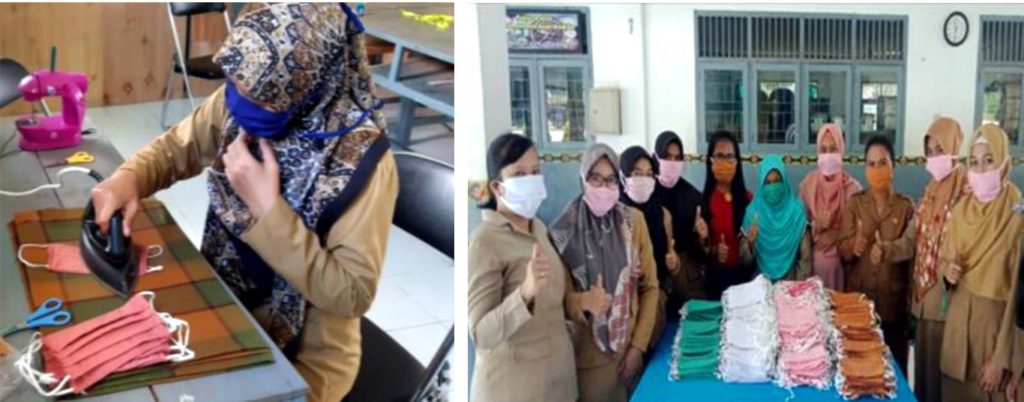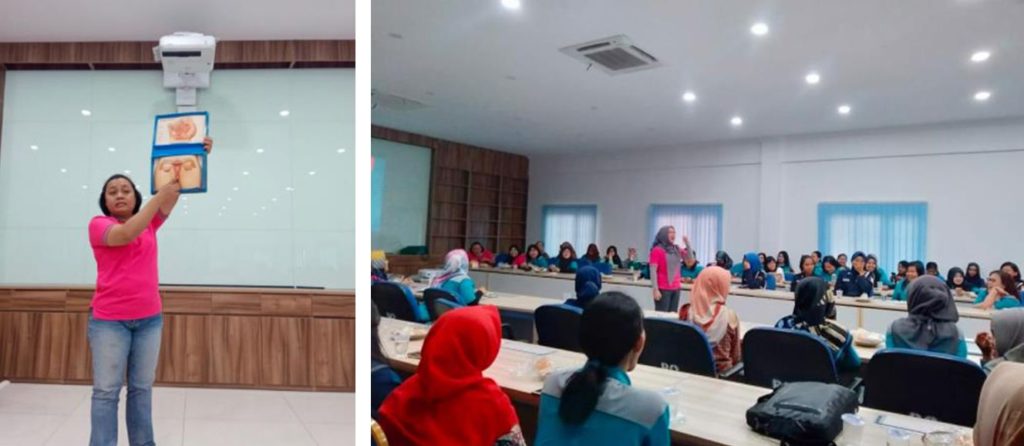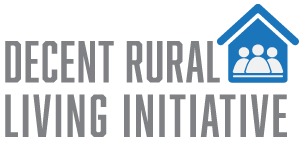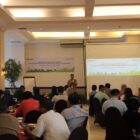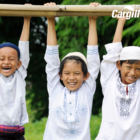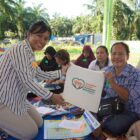By Perpetua George
With contributions by Kimberly Tan, Ruebini Naidu, Dhora Elfira, Diana Ester, Elmiati Piliang, Herni Zen, Kristine Bt Kasphil, Marcie Elene Japony, Marja Yulianti, Mazilla Jaikal, Monica Jentang AK Chapon, Nelly Hinjiang, Roslinah Madjinak, Sarimanah, Susana Diong, Tiurma Napitupulu, Wirda Khairani, Florida Ninobla.
It started before our flight to Sandakan, at the boarding gates for domestic departures in the Kuala Lumpur International Airport. My two colleagues and I from the Kuala Lumpur office were just starting our trip, when familiar faces started to appear while greeting us, “Selamat pagi Bu!”, “How are you all? Long time no see!”. We were joined in the small airport lounge by our colleagues from various regions in Indonesia, who I normally meet when visiting our plantation estates, as we all waited for the same flight. We were all en route to the same place for the same important event.
I have lived through this scenario many times before. But what stood out this time was that we were all women. We were all travelling together to attend the first ever meeting of the newly established Women’s Committee Steering Group. From across our operations in Indonesia and Malaysia, we women had a mission – to pull together a single overarching policy document about women’s issues and women’s rights for the company.
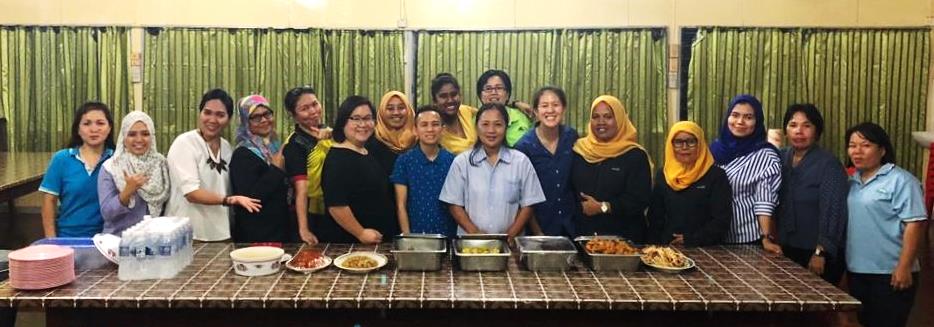
And so, 17 women representing Human Resources, Sustainability and the 12 estate operation regions in Indonesia and Malaysia spent 3-days in April 2019 gathered at the IPAS Training Centre in Wilmar’s Sapi estate. For the first time, we were all discussing problems, issues, and potential solutions together as women. It did not matter that we were of different ranks, ages, backgrounds – the ability to talk openly about our shared experiences felt revolutionary. In all my years working, I had never been in a key policy development meeting that was wholly female.
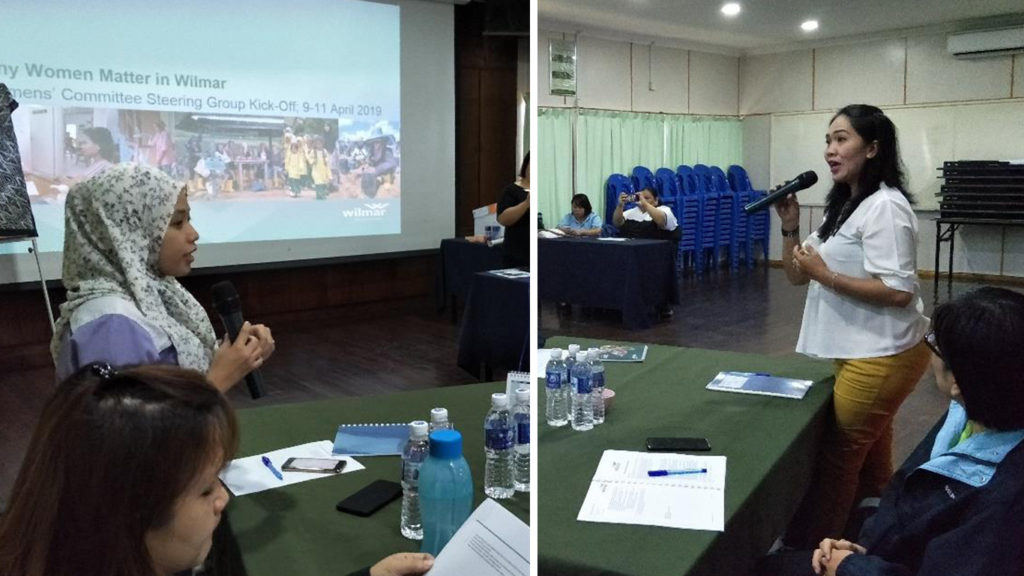
Since 2005, in line with our RSPO membership, Wilmar put in place a Sexual Harassment Policy with procedures, an Equal Opportunities Policy, as well as committees set up per estate to specifically address women’s issues and sexual harassment cases. All of this was fine and well. But in 2018, when I started looking into more details on how things were working in practice – it became clear that although there was much effort, we needed more consistency, alignment, and a clearer vision of the end objective.
I realized that part of the problem was that it was difficult for my colleagues to raise questions and concerns that were potentially sensitive to the estate management, who are predominantly male. The problem is not the Wilmar estate management, but that as women it can be embarrassing, uncomfortable or even just difficult, to raise issues related to women’s rights, relationships, or sex, among others, with male superiors or colleagues. As a woman, you worry that you may not be taken seriously, or worse, fear that you will be viewed as incapable, or petty. Hence, many women just decide not to talk about it.
This issue is culturally significant in the workplace – especially in any industry that is male dominated. To make a shift in the culture in Wilmar specifically, I had a responsibility to initiate that change, and to bring conversations about women and women’s rights to the forefront. As General Manager for Group Sustainability – I decided I needed to take a direct role and be the enabler. With that, a 3-step plan was rolled out.
The first step was to address the female leadership void and create a support network. I got the agreement from our management to establish a group-wide Women’s Committee Steering Group (WCSG), which would be led by myself, as a woman in group level management. The WCSG would also have regional leads who would be the contact point for all estates and mills in that region. The regional leads are then able to reach out to country level coordinators. Within this structure a network was created that would allow issues and problem solving to be discussed with female support throughout. Issues could also be escalated all the way to management level as the need arose via the secure confides of the WCSG.
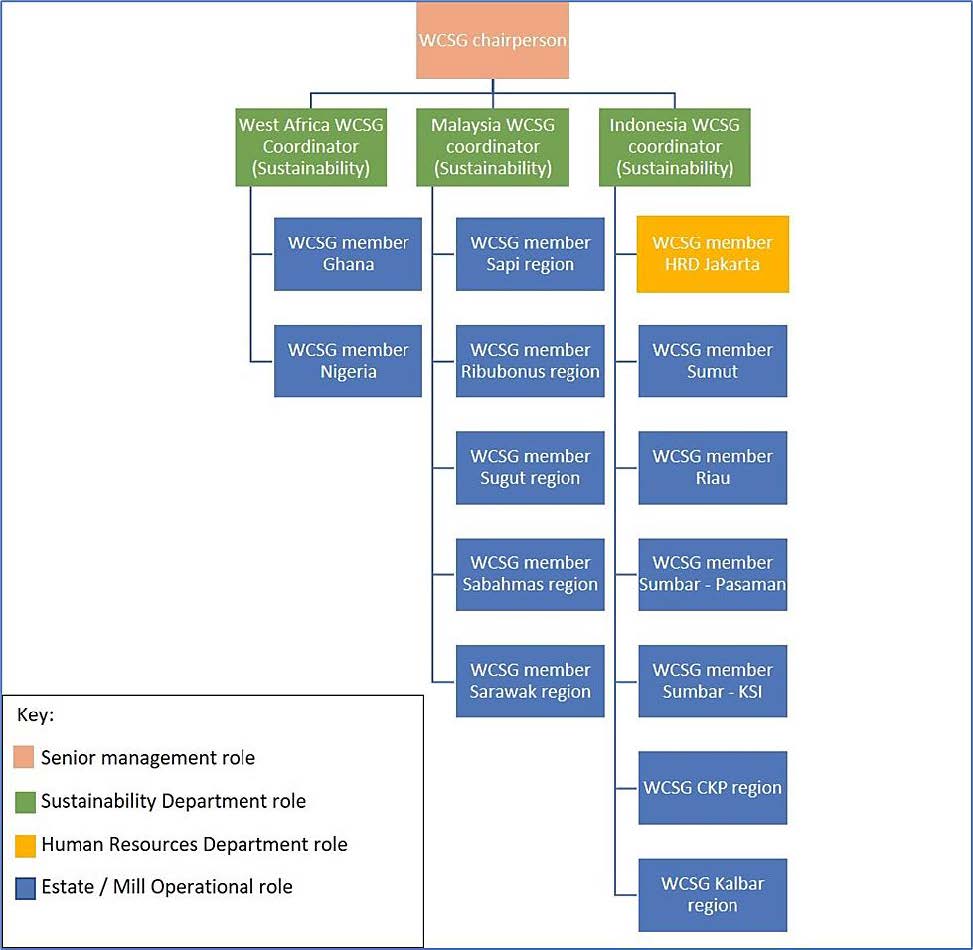
The second step was to address consistency across the company. We found that there was too much variation in efforts on the ground after years of each committee operating independently at estate level. For example, some estates concentrated more on recreational activities, while others focused heavily on child nutrition and safety but not on female health, and so on. During the 3-days workshop, we shared what each region had been doing over the last few years, which then led to questions being asked and discussions on areas of improvement and solutions. Lots of issues and topics were thrashed out and from that, 5 critical areas of focus were agreed upon.
These 5 critical areas incorporated the recognition of the roles that women play in both work and home life. This became the 5 mandatory issues that form the workplan for addressing concerns on the rights of women in our plantation operations. With a common understanding on the core areas of focus, the group also pulled together insights on how the other policies in Wilmar related to women, and the Women’s Charter was thus born.
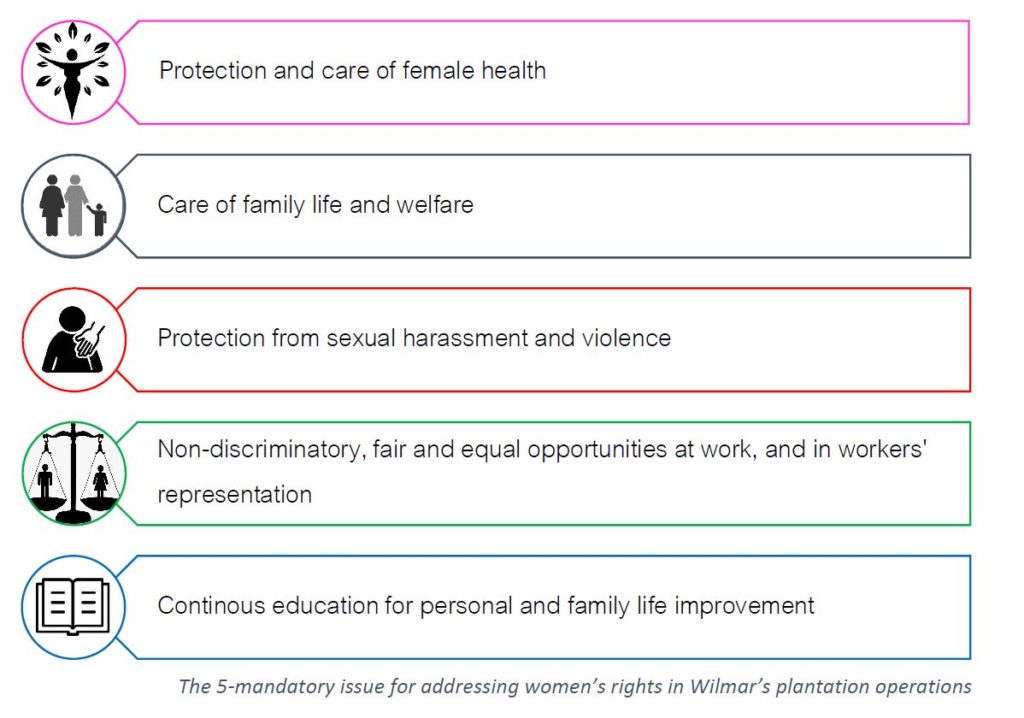
With the Women’s Charter clearly defining the areas of focus, the WCSG also took on a role to ensure consistency in approach and enabling good practices and examples to be shared within the network to fast-track improvements and progress.
There was also the more minor issue of what the committees were called. Across the company, while functioning similarly, they were sometimes called “gender committees”, or “women committees”, or “women & children committees”. To resolve this, we decided to streamline the estate level committees by calling them Women Working Groups, or WoW for short – which would also enable distinguishment with the WCSG.
The third step was the most difficult one. To improve, we needed to talk honestly about what was working and what was not. Within the 3 days, we lamented, laughed, and got emotional talking about issues to do with challenges in investigating sexual harassment cases, about natal deaths, about women’s health and sexual health, and personal experiences of what it is to be a working mother, and how we manage expectations on us as female members of a wider Wilmar workforce. There were differing views shared across various topics, and sometimes heated discussions, for example on attitudes on healthcare in Indonesia versus in Malaysia.
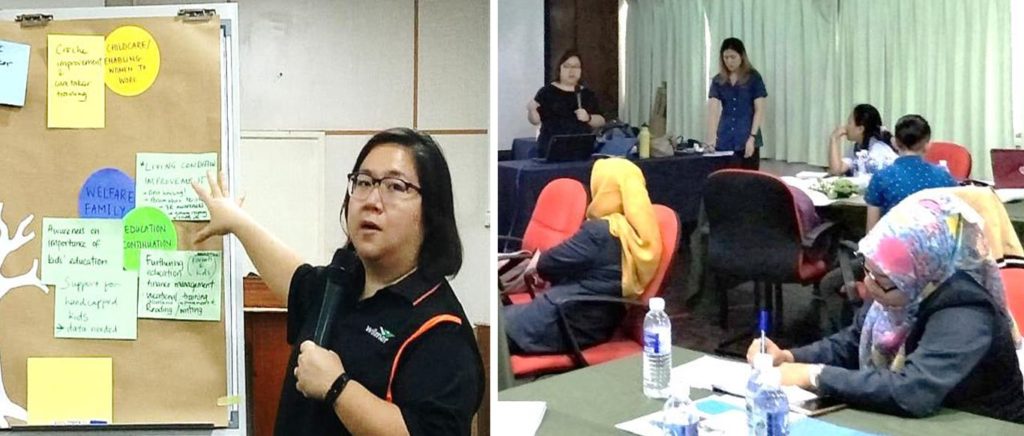
At the end of the 3-days it was clear that the area where support and help was most needed was in the implementation of sexual harassment case investigation. A lot of the stress was coming from the scenario that the estate environment is a self-contained community. The WoW is after all working in an environment where they are also living amongst potential victims and harassers, with people they also worked with who often belong to the same community and at times, are their work superiors. There were experiences shared of cases becoming the item of gossip prior to resolution; of concerns with the wellbeing of the victim; of a case where a WoW member investigating the case was potentially facing risks because of her intervention to rescue a victim.
There was also the need to clarify the scope of the sexual harassment policy. The WoW were regularly being asked to investigate and intervene in cases that were not actual sexual harassment cases, which added unnecessary burden and stress while deterring the committees from their actual work. Examples include cases related to extra marital affairs, divorces, and objections to consenting adult relationships.
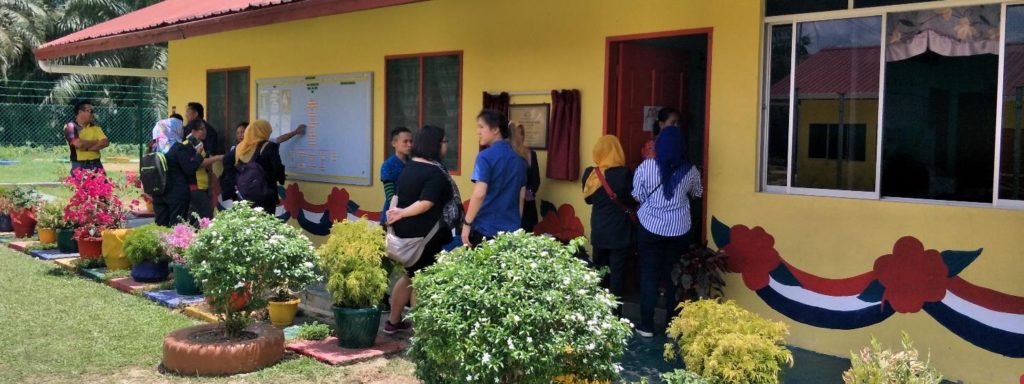
These discussions helped to identify that more work and expertise was needed to improve how the sexual harassment policy and procedures were being implemented, notably on how victims were being supported, and on improving clarity and understanding within the WoW. Based on this, a term of reference was developed to find an external organization to assist with building better understanding of sexual harassment and gender-based violence amongst the WCSG and the WoW, but also to help us clarify and improve the existing procedures. Initially planned for 2020, the work with a reputable women’s rights organization is now slated to begin later in 2021, delayed due to the Covid-19 pandemic.
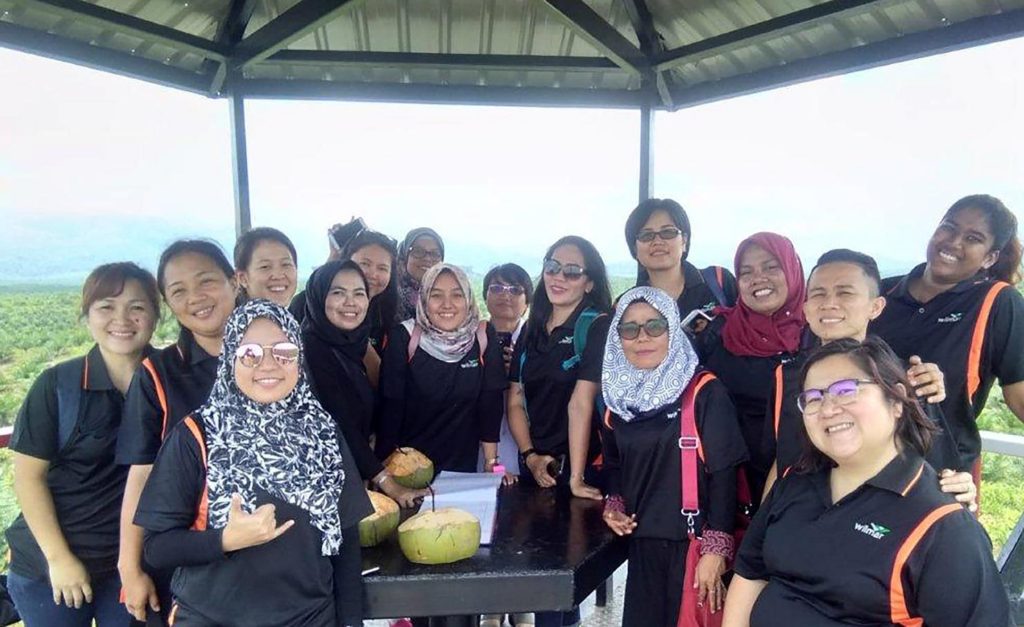
At the end of the 3-days, the 17 women went back to their respective regions and immediately started working on alignment. The WCSG network became immediately active sharing input and experiences and carrying out activities related to the 5 focus areas. On the 1st of May 2019, we successfully published the Wilmar Women’s Charter.
Signed off by our CEO, Mr Kuok Khoon Hong, the charter now applies throughout the company. Meanwhile the WCSG and the WoW continue to work hard on implementing our collective vision of women’s rights in the Wilmar workplace.
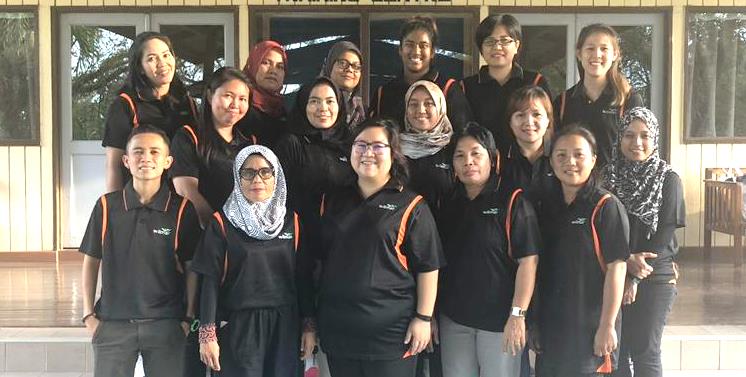
PROGRAMS & ACTIVITIES BY WoW SINCE 2019
